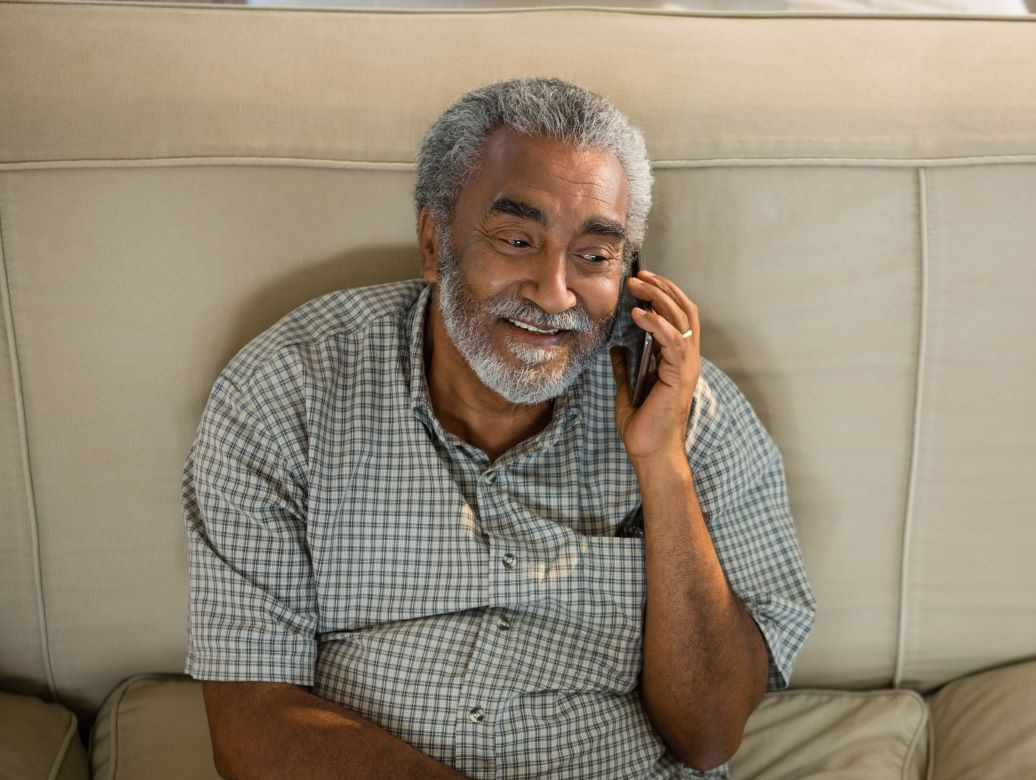Creating a Meaningful Connection With Your Matches
By Angela Lunde (Mayo Clinic)

When people engage in peer support, it’s important that they feel comfortable talking about difficult issues. Many peers talk about the relief of feeling that they are “not the only one.” This can be comforting and reassuring, especially if you’ve been struggling alone for a long time. Being with someone else who is also a dementia caregiver, or who has been one in the past, makes it easier to open up and help one another. It can be liberating not having to explain your caregiving situation in depth because in peer support the other person probably “gets it.” Both people are able to feel empathy and mutual understanding.
It is just as important to understand that not all dementia caregivers will have similar caregiving experiences or be able to cope in the same ways. In other words, when you’ve met one caregiver, you’ve met one caregiver – no two experiences will be exactly the same. Recognizing, respecting, and valuing these differences is essential to building a supportive and trusting relationship.
To help build the relationship, try and connect at least once a week in the beginning. The ways you choose to connect are up to you and your peer. Connections can happen by phone, e-mail, text, in person, or through other agreed-upon methods.
Below are some additional recommendations that can help build a trusting, healthy, and meaningful peer-to-peer relationship.
When you are the one talking:
-
Maintain boundaries
You decide what parts of your experience you want to share and what you wish to keep private. Only discuss what you personally feel comfortable sharing. -
Be open
Share your caregiving experiences and feelings honestly. -
Try not to get “stuck”
Talk openly about the challenges you are facing as a caregiver but try not to dwell, ruminate, or let the conversation get consumed by only talking about what’s been going badly. -
Say what’s helping
Share your coping strategies and self-care practices. Maybe you find peace by walking in nature, watching a favorite TV show, or enjoying a special food. Your ideas might bring joy to someone else, too. -
Reflect on growth
Talk about the skills you have gained that have been helpful to you as a caregiver. -
Share tips
Talk about the resources you have found that have been helpful to you. For example, useful books or websites, tips for navigating the health care system, or support groups you’ve benefitted from. -
Give and take
Try not to dominate the discussion.
When you are the one listening:
-
Offer empathy
Letting someone know that you understand what they are feeling is one of the most important ways of showing support. Empathy is to feel “with,” whereas sympathy is to feel “for.” Empathy is the ultimate way to show support. Here’s an example:- Empathy: “I can tell this is weighing on you.”
- Sympathy: “I feel so bad for you.”
-
Validate
Validating communicates acceptance and understanding, even if you don’t necessarily agree. When you validate, you are accepting the other person’s point of view, experience, or feelings. Validating someone’s feelings is an essential way to offer support. Here’s an example of validating: “I’m sorry you don’t feel like your doctor is hearing your concerns about your mother’s change in behavior.” -
Ask specific questions
Asking a question before offering feedback demonstrates that you care and are curious about the person’s experience. It also opens communication and gives that person more room to reflect and share. For example:- Tell me a little more about that?
- What do you need right now?
-
Allow for feelings
Let the other person share their feelings, even the negative ones, and don’t interrupt. Being able to openly express negative feelings helps lessen their impact. -
Listen
The most important thing to keep in mind is that people want to feel heard. By listening carefully, without distractions or interruptions, you are communicating that the other person matters to you. -
Avoid judging
Actively work to understand the perspective and experience of the other person; no two caregivers are the same and each will see things differently. Respectfully allow your peer to express a viewpoint, even if you have a different one. -
Don’t feel like you need to fix things
Do not give advice, offer a solution, or to try to fix the problem before asking what the other person needs. More than likely what the person wants is to be heard and supported, not to be told what they should or should not do. The worst kind of advice is the kind no one asked for. When it comes to dementia caregiving, there are often no easy answers, so your non-judging, understanding presence, and empathy will go a long way.